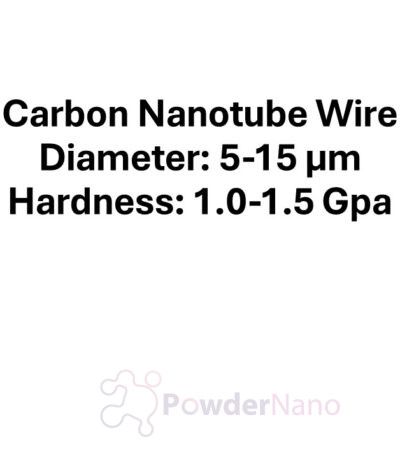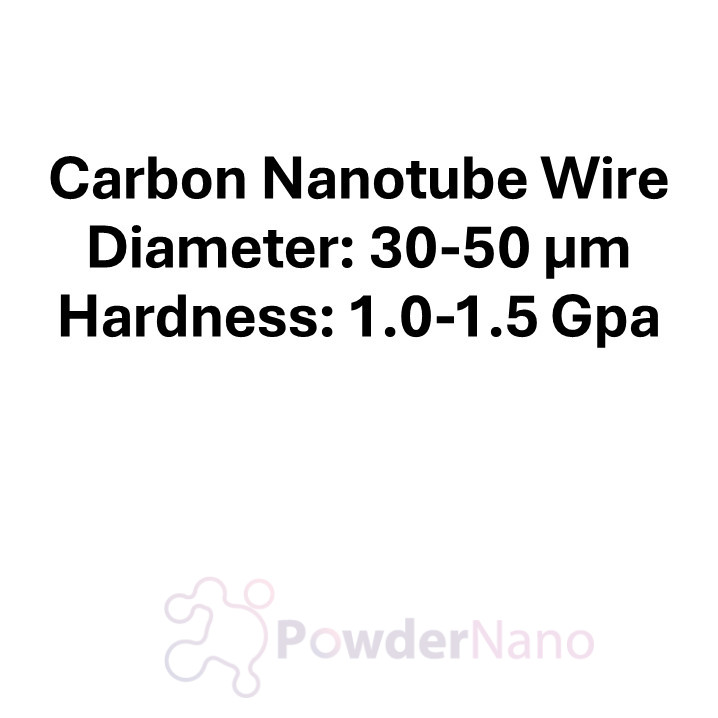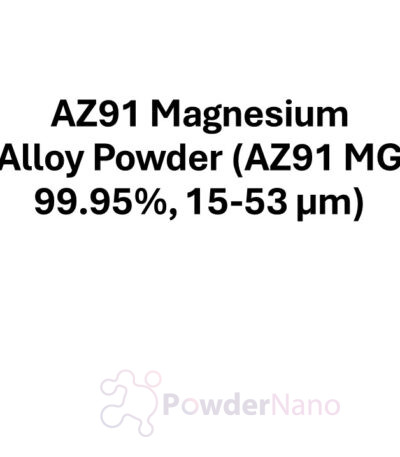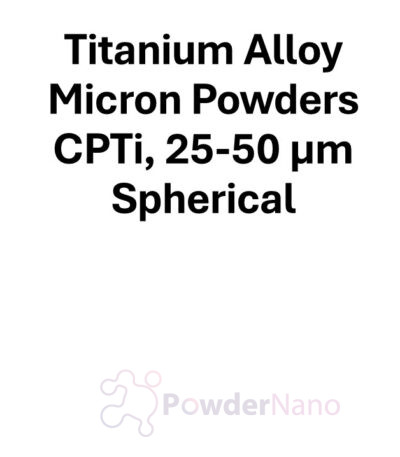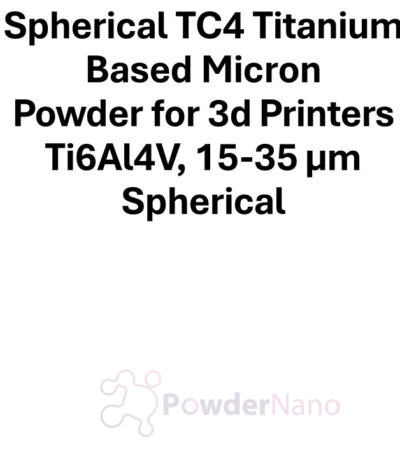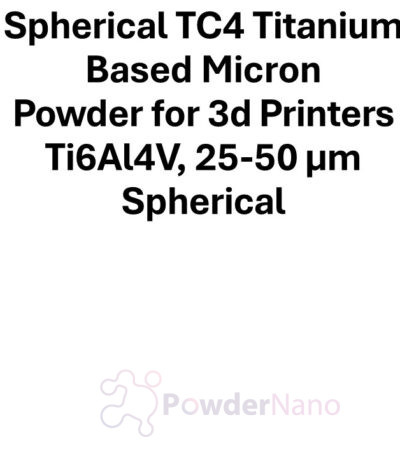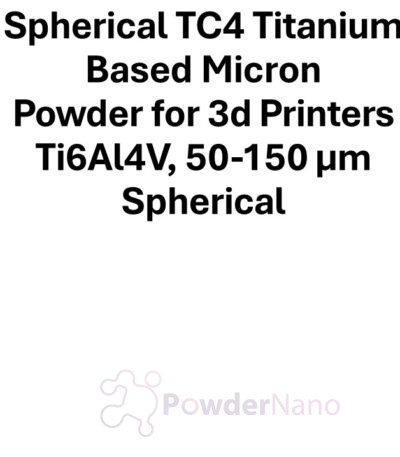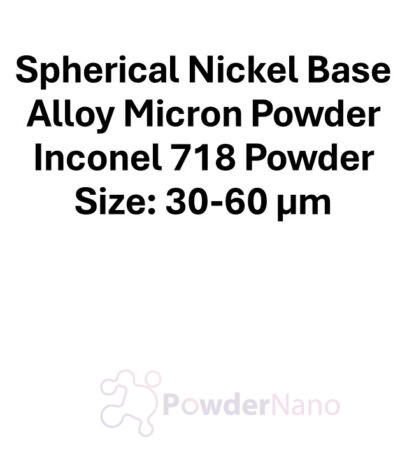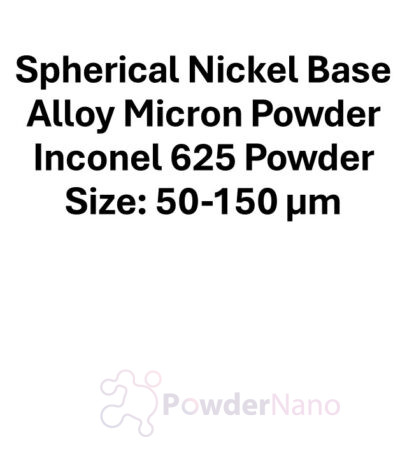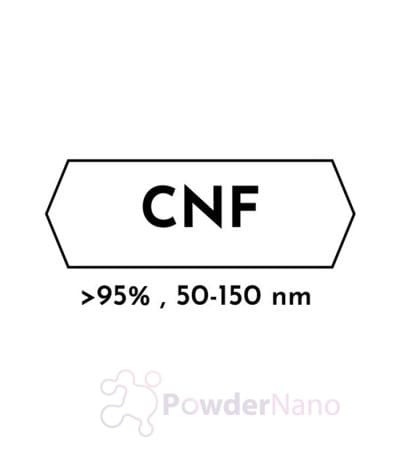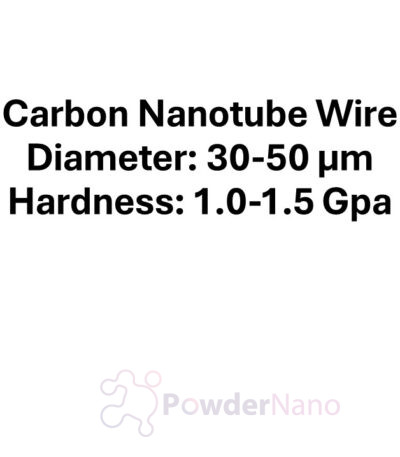Product Specifications:
Material:
- Carbon Nanotube (CNT) Wire:
- Comprised of aligned or spun carbon nanotubes, either single-walled (SWCNTs), multi-walled (MWCNTs), or hybrids.
- Engineered for high-performance mechanical, thermal, and electrical properties.
Diameter:
- 30–50 μm:
- Suitable for applications requiring robust yet lightweight wires in slightly larger dimensions compared to ultra-thin wires.
Hardness:
- 1.0–1.5 GPa:
- Exceptional mechanical hardness, offering significant resistance to wear, deformation, and compression.
Tensile Strength:
- Likely to range from 1–5 GPa depending on fabrication methods and nanotube alignment.
Electrical Conductivity:
- Approximately 10⁵–10⁶ S/m:
- Ideal for use in applications where electrical conductivity is critical.
Thermal Conductivity:
- Typically around 200–600 W/m·K:
- High thermal conductivity, ideal for applications requiring efficient heat dissipation.
Density:
- Typically 1.3–1.6 g/cm³:
- Provides an excellent strength-to-weight ratio compared to conventional metallic wires.
Key Features:
- High Strength and Durability:
- Combines excellent hardness and tensile strength for demanding environments.
- Lightweight:
- Offers significant weight savings compared to traditional metallic wires such as copper or aluminum.
- Exceptional Conductivity:
- Conducts electricity and heat efficiently, making it ideal for power and electronic applications.
- Corrosion Resistance:
- Unlike metals, CNT wires are resistant to chemical corrosion and environmental degradation.
- Flexibility:
- Maintains strength and function under bending or deformation.
Applications:
- Electrical Transmission:
- High-performance wires for power grids, advanced circuitry, or ultra-efficient transmission lines.
- Lightweight alternative to copper in aerospace and automotive wiring.
- Thermal Management:
- Heat-resistant wires for electronics, ensuring efficient heat dissipation.
- Wearable Electronics:
- Conductive threads for smart textiles and flexible electronic devices.
- Medical Devices:
- Biocompatible conductive wires for implants or sensors.
- Aerospace and Automotive:
- Lightweight, durable wiring for high-performance systems where weight and strength are critical.
- High-End Composites:
- Used as reinforcement in advanced materials requiring conductivity and structural strength.
- Sensor Technology:
- Robust and conductive material for sensitive and reliable sensor systems.
Advantages Over Conventional Wires:
- Weight Reduction: Reduces overall system weight in aerospace and automotive applications.
- High Performance: Combines superior hardness, strength, and conductivity.
- Durability: Resistant to extreme environments, including heat and corrosion.
